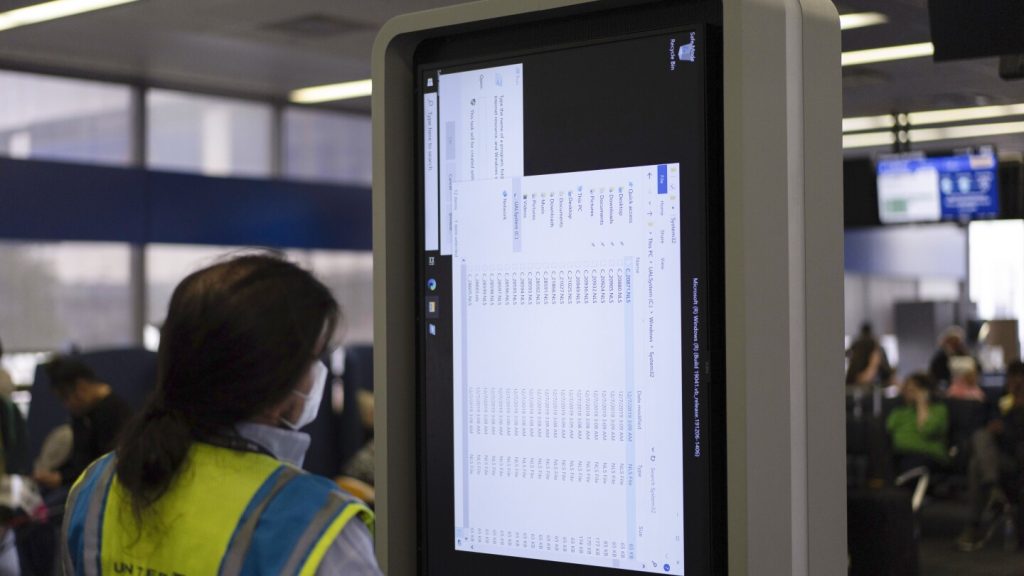Transport providers, businesses, and governments are working frantically to restore their systems following a widespread technology outage that has caused significant disruptions, particularly in air travel. Thousands of flights were canceled on Friday, leading to planes and crews being out of position, while airports continue to face issues with check-in and security procedures. At the center of this massive disruption is CrowdStrike, a cybersecurity firm that deployed a faulty update to computers running Microsoft Windows, affecting 8.5 million devices worldwide. Microsoft has clarified that the issue was not a security incident or cyberattack but rather a technical glitch.
A leading doctors’ organization in Austria has called for better data protection for patients following the global IT outage, highlighting the vulnerability of health systems reliant on digital technology. The organization emphasized the importance of having analog backups in hospitals to safeguard patient care in case of similar incidents. In Germany, the government’s IT security agency has reported that many companies are still grappling with the consequences of the outage, with disrupted business processes and potential cybersecurity threats such as phishing scams. Despite this, many impacted areas have started returning to normal operations.
European airports, including Heathrow in London and Berlin Airport, are slowly resuming normal operations after experiencing disruptions due to the IT outage. Flight schedules are starting to stabilize, and passengers are gradually being accommodated. In Germany, the Schleswig-Holstein University Hospital, which previously canceled elective surgeries, is gradually restoring its systems, with plans to resume normal operations by Monday. Meanwhile, the British transport system is still struggling to recover, resulting in delays and cancellations for travelers during the summer holiday season.
Airline companies such as Eurowings, a budget subsidiary of Lufthansa, are hopeful of returning to largely scheduled flight operations after the global IT outage forced them to cancel numerous flights, causing inconvenience to passengers. Delta Air Lines and its regional affiliates, United Airlines, and American Airlines were among the carriers that had to cancel a significant number of flights due to the disruption. The impact of the outage extended to border crossings into the U.S., with delays reported at ports of entry on both the northern and southern borders. The city of Portland, Oregon, declared an emergency after more than half of its computer systems were affected by the outage.
As authorities, businesses, and individuals continue to grapple with the fallout from the IT outage, the focus is on restoring normalcy and preventing future disruptions. The National Cyber Security Center in the UK has issued warnings about potential phishing attempts by cybercriminals seeking to exploit the situation. While the worst of the crisis may be over, challenges remain, especially for sectors like aviation that require time to realign operations. The incident serves as a stark reminder of the interconnected nature of the digital ecosystem and the need for robust cybersecurity measures to protect critical services and infrastructure.















